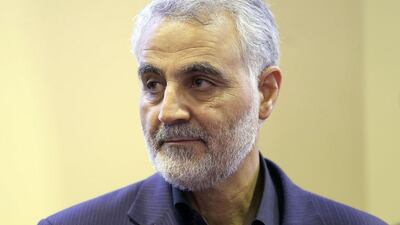Recent reports of increased Russian military aid to Bashar Al Assad's embattled regime in Syria raise questions over what exactly are the Kremlin's long-term intentions in the country. Russia's stepped-up intervention suggests that Vladimir Putin has renewed his determination to prop up Mr Al Assad regardless of the plight of a desperate population caught among the mosaic of factions fighting for supremacy.
Moscow’s apparent decision to boost its support for Syria comes after several months of discussions between some of the key players in the conflict, including a meeting between the US secretary of state John Kerry and the Russian foreign minister Sergei Lavrov in Doha in August. With more than 250,000 people killed and half of the Syrian population already displaced by the fighting, these talks are a tacit acknowledgement that only a political initiative will overcome the current military stalemate.
However, the Russian position has hardened over the past few weeks. In a speech this month, Mr Putin blamed the crisis on the West’s “failed” policies in the Middle East. As for the possibility of a political solution in Syria, the Russian president claimed that Mr Al Assad was ready to hold parliamentary elections and accept moderate opposition elements in a new government.
Mr Putin’s new stance appears to rule out any prospect of a post-conflict era without Mr Al Assad. Contrary to popular perceptions, Russia’s support of Syria since the conflict began in 2011 has not been unconditional. While the Russian delegation at the UN has steadfastly protected the Damascus regime from international condemnation, some Russian diplomats have privately admitted that Mr Al Assad’s removal is a condition for a political settlement. Mr Putin has conceded that the insurrection against the Syrian government was partly due to the regime’s inability to carry out reform.
The Kremlin now seems resolved to set its reservations aside and offer more concrete support to a regime that has recently lost significant ground against myriad opposition forces. The new military aid will probably take the form of increased logistical assistance and training. The key question is whether Russian forces will play a more active role in the fighting. It is likely that the Russians have discussed the military options with Iran. A visit by General Qassem Suleimani, the leader of the Iranian Quds force, to Moscow in late July was almost certainly due to the situation in Syria.
Moscow’s willingness to connive in the survival of a regime that appears to have lost all legitimacy could be explained by strategic interests. Russia’s naval base at Tartus, a relic of the Cold War alliance between Moscow and Damascus leased to the Soviet navy in 1971, is an enduring symbol of a close relationship that survived the collapse of the Soviet Union in 1991. Since then Tartus has served as Russia’s only strategic foothold in the Mediterranean, though the base itself is a relatively small facility of marginal military importance.
However, Tartus could serve as a potential focal point for new infrastructure, including an airbase, should Russia decide to go on the offensive within Syria. Mr Putin’s approval of a larger military footprint suggests that the Russians are seeking a more active role in combating ISIL. Mr Putin has recently called for a new “international coalition against terrorism and extremism”. This attitude reflects Moscow’s perception that Russia, the West and Arab states have a shared interest in crushing extremism.
The threat is taken very seriously in Moscow given the history of violence in Russia's North Caucasus region. The Russian intelligence and security services have been closely monitoring the hundreds of fighters who have travelled to join ISIL. These include Abu Omar Al Shishani, an ethnic Chechen from Georgia who has achieved notoriety as a prominent ISIL commander. For the Kremlin, ISIL poses a significant menace that could destabilise fragile regions within Russia's own borders.
It has been speculated that Mr Putin’s visit to the UN General Assembly this month will feature a renewed call for international cooperation to defeat ISIL. Given recent condemnation of Russian policy in Ukraine, the Kremlin stands to claw back some diplomatic credit for aiding the fight against extremists and the search for a political breakthrough in Syria. Whether the conflict is resolved or not, Mr Putin is determined to see that Russia remains a force to be reckoned with in the Middle East. In any event, a military presence in Tartus will provide at least a partial insurance policy should Russian efforts to play peacebroker fail.
Whether the Syrian civil war is resolved by a diplomatic solution or force of arms, Mr Putin is thus maximising his options to ensure that he will have a say in the conflict’s endgame. The Russians have also very evidently committed themselves in Syria to a degree that they would suffer a major loss of face if forced to abandon Mr Al Assad to the rebels.
Russian policy is thus being framed with the international chessboard in mind: in seeking to exert the maximum political and military influence in Syria, the Kremlin is reminding all concerned that its interests cannot be discounted no matter how the war might be concluded.
Stephen Blackwell is an international politics and security analyst

